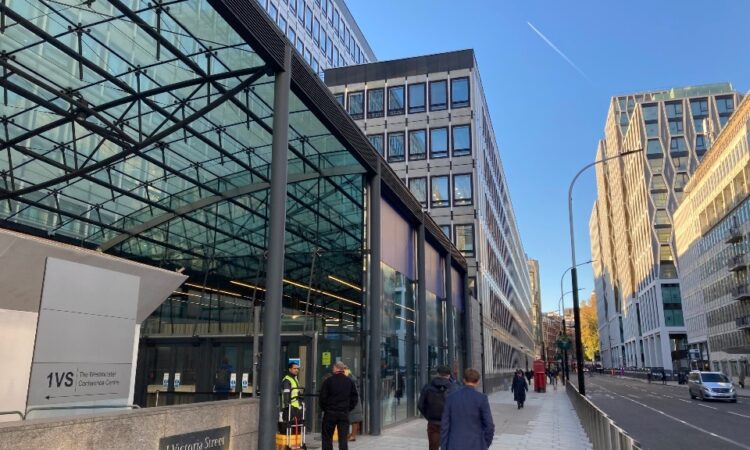
- Leading figures in finance and philanthropy demonstrate action in crucial drive to tackle climate change in developing economies.
- Convened by the Energy Security Secretary Grant Shapps and US Special Presidential Envoy for Climate John Kerry, the Forum aims to catalyse efforts to unlock private capital
- His Majesty The King and President Biden will engage with the participants at Windsor Castle today following talks.
Top financiers and philanthropists will come together in Windsor today (10 July) for a Climate Finance Mobilisation Forum to recognise and encourage efforts that increase support for emerging and developing economies to accelerate a net zero, resilient transition.
Organisations are encouraged to bring examples of recent and new activities that represent significant investments to drive climate action and harness the environmental, economic, security, and social benefits it brings – building momentum on implementation efforts that contribute to achieving the goals of the Paris Agreement.
Energy Security and Net Zero Secretary Grant Shapps and US Special Presidential Envoy for Climate John Kerry will host major financial players and philanthropists for the special event, convened as part of President Biden’s visit to the UK, before participants travel to Windsor Castle to speak to His Majesty The King and the President about the conclusions of the discussion.
It is estimated that by 2030 annual clean energy investment in these countries needs to expand by more than seven times, to above $1 trillion, in order to put the world on track to reach net-zero emissions by 2050. And that is for clean energy alone; additional investments are needed to reduce non-CO2 emissions, halt deforestation and reverse forest loss, and adapt and build resilience to climate change.
Energy Security Secretary Grant Shapps said:
Finance is the lifeblood of growing economies. Billions has been spent so far to accelerate the green transition already underway, and the UK is delivering its £11.6bn of International Climate Finance to support countries around the world – but if we want to deliver real change, we must go further and do it together. The scale of this transition requires trillions in private investment in addition to the public funds we are spending.
Today is about uniting with our US allies and key enablers, using this world-leading expertise for the benefit of not just our own economies but those that will be most affected by climate change impacts – updating The King and President on what we’re doing to set us all on a path to net zero and greater climate resilience by unlocking private investment.
Building on the US-UK Atlantic Declaration, today isn’t just about cutting emissions, it’s also supporting countries to achieve a secure, cheaper and home-grown energy system – to grow their economy and create jobs.
US Special Presidential Envoy for Climate John Kerry said:
The climate crisis is here. It’s caused by the unabated burning of fossil fuels, and it’s going to get worse without action. No government can solve this crisis by itself. We need to work together with the private sector and philanthropy to speed up the net zero, resilient transition.
One important outcome of today’s event will be the ideas and potential collaborations that are seeded and the tangible action and ways private finance and philanthropies can collaborate to accelerate action on the road to COP28.
Since day one, President Biden has taken decisive action to mobilize an unprecedented effort to tackle the climate crisis, and that work continues today in partnership with the UK to raise ambition through concerted action between the public, private, and philanthropic sectors.
Currently emerging markets and developing economies account for two-thirds of global greenhouse gas emissions, and many are highly vulnerable to climate hazards. These economies are crucial for tackling climate change and halting nature’s decline, as well as being key partners for the UK and US in generating shared prosperity from the global transition.
The UK and US can capture a huge economic opportunity by supporting the global transition, whilst building closer relationships with high growth emerging markets and developing economies as they seek to meet their own financing needs.
Following Putin’s barbaric attack on Ukraine, governments are redoubling efforts not only to keep 1.5C alive, but boost cleaner, more secure and cheaper energy that moves away from costly fossil fuels.






